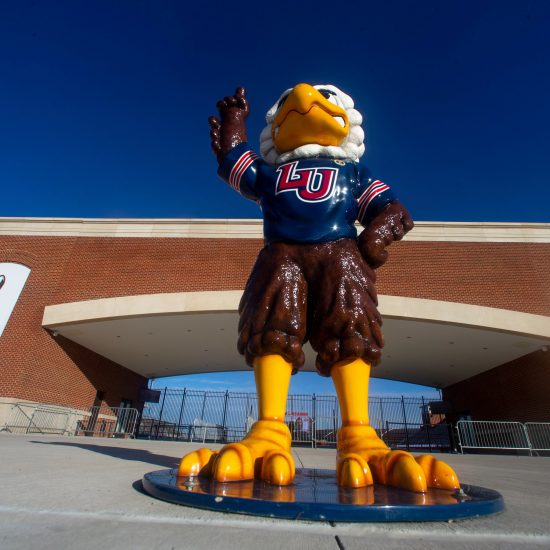By Vicki Brown, Word&Way Associate Editor
Jefferson City — The Missouri Baptist Convention and Missouri Baptist University must sit down and discuss possible solutions to the ongoing legal battle between the two.
Cole County Circuit Court Judge Thomas Brown sustained the university's motion for mediation after listening to arguments at a hearing Aug. 7.
After hearing from both parties, Judge Brown asked, "What about getting together just to find out" if mediation would work?
He noted that often a matter could be settled when opposing parties ask for mediation. Although he added he usually does not force litigants to try mediation, he approved it in the MBC case in spite of objections from convention attorney G. Stanton Masters.
Masters noted his clients would not be interested in discussing issues if the university does not have a new proposal to offer. "We've been down that road with the college," he said, because MBU's insurer had asked the convention to consider mediation last fall.
University attorney Clyde Farris argued for mediation as a means "to get the matter out of the lawyers' hands." A lot of time and too much money have been already been spent on litigation, he added.
When the judge asked if any flexibility exists in the university's position, Farris responded that MBU is "interested in talking" but that he is unaware of specific changes the university would consider.
The judge's order is among the latest rulings in the continued legal action between the MBC and five entities. In 2000, The Baptist Home changed its charter to allow the institution to elect its own trustees. The following year, MBU, Word&Way, Windermere Baptist Conference Center and the Missouri Baptist Foundation took similar actions.
In the past, messengers to MBC annual meetings elected trustees for the boards.
The convention filed legal action against the five entities on Aug. 13, 2002, in an effort to force the institutions to rescind the charter changes and to regain control of the trustee election process.
Mediation won't slow process
Judge Brown's mediation order allows both sides to continue collecting information so that an eventual trial would not be delayed if an agreement cannot be reached by mediation.
Although the Foundation had considered joining the university's motion on Monday, attorneys have decided to wait to see if the university and the MBC are able to reach an acceptable agreement.
Eric Walter, who appeared at the Aug. 7 hearing on behalf of Windermere, Word&Way and The Home, could not comment on the judge's order. Lead attorney Jim Shoemake could not be reached.
Speaking to news media after the hearing, MBC attorney Michael Whitehead emphasized, "The issue is whether the [entities'] charters are enforceable."
In the past, the convention and the heads of the five entities briefly considered arbitration, rather than mediation, as an option to avoid taking the matter to court.
Messengers to the 2001 MBC annual meeting authorized formation of a legal task force and asked the convention to pursue whatever means necessary to restore the five entities to their former relationship.
Early in 2002, legal task force leaders mentioned the possibility of settling the issues through binding Christian arbitration. But convention leaders and agency heads understood the term differently.
At the time, both sides said they wanted to find a process through which underlying issues — Baptist polity and control — could be dealt with, as well as legal issues.
Although legal task force leaders said they wanted to discuss those underlying issues, they asked agency heads to sign an agreement that only included a binding Christian arbitration option. The agreement did not mention mediation as a first step, even though Peacemakers, the firm the MBC wanted to use for the process, recommends parties begin with conciliation or mediation before moving to binding arbitration.
In mediation, a third-party mediator helps disputing parties determine a fair and mutually acceptable agreement. Mediation does not always end in a solution.
Binding arbitration allows a third person or a panel of individuals to lead disputing sides to a legal settlement that all parties must accept. The settlement is determined out of court but is legally binding.
Entity heads believed they could not pursue a binding agreement because their board members — not the agency presidents — determine each institution's actions. At the time, the chief executive officers indicated they would consider discussing the issues and work toward a compromise.
A breakthrough seemed to come when both sides met in St. Louis on May 28, 2002. At that session, then-MBC president Bob Curtis, legal task force chairman Gary Taylor and the institutional heads shared testimonies and began tentative discussion of perceived issues.
They discussed ways to understand one another and to find a solution to which all parties could agree. At that time, conciliation and mediation were discussed.
However, after that meeting, Curtis called for a special session of the MBC Executive Board in which board members authorized the legal task force and MBC officers to pursue legal steps.
Entity heads felt the MBC had issued an ultimatum — rescind the actions or the issue would be settled legally, either by an arbitrator or in court.
The Executive Board appeared to strengthen its stand at its December 2002 session. Board members withdrew the binding Christian arbitration option in order to prevent the institutions from requiring the convention to submit to arbitration at a late stage in the legal process.
At that time, they did not indicate whether they would agree to explore other options, such as mediation. (08-08-06)



